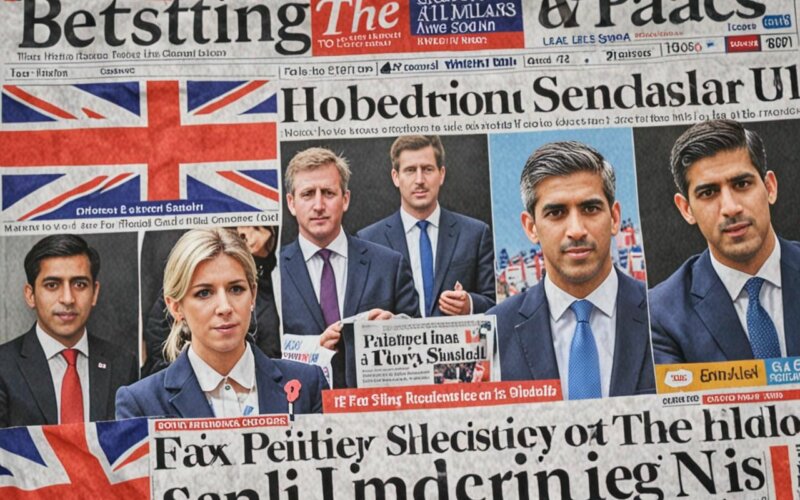Key Takeaways:
- The Conservative Party has dropped support for two candidates amidst allegations of betting on the election date.
- Craig Williams, a close aide to Prime Minister Rishi Sunak, admitted to betting on the election timing.
- The Gambling Commission is investigating the alleged improper betting by another candidate, Laura Saunders, and her husband Tony Lee.
In a twist that reads more like a political thriller than the run-up to a national election, Britain's Conservative Party finds itself ensnared in a controversy that could only be described as both unprecedented and sensational. The heart of the matter? Allegations of betting on the very timing of the July 4 national election, leading to the withdrawal of support for two parliamentary candidates, Craig Williams and Laura Saunders. This scandal unfolds against a backdrop of already challenging polls for the party, painting a complex picture of internal strife and ethical quandaries.
The Unfolding of a Political Drama
The narrative begins with Craig Williams, not just any party member, but a close aide to Prime Minister Rishi Sunak, who found himself apologizing for placing a bet on when the election would be held. This alone would be enough to set tongues wagging, but the plot thickens with the involvement of Laura Saunders and her husband Tony Lee, the latter serving as the party's campaign director. Reports surfaced, drawing the attention of the country's regulator, the Gambling Commission, into allegations of improper betting activities.
Tony Lee's decision to take a leave of absence from his pivotal role does little to quell the storm, as the party scrambles to distance itself from the unfolding scandal. A spokesperson for the Conservative Party made it clear that the withdrawal of support for Williams and Saunders was a direct consequence of their "ongoing internal enquiries," emphasizing the gravity of the situation.
The Ripple Effects
This scandal does not exist in a vacuum. It emerges at a time when the Conservative Party is already bracing for a tough battle in the forthcoming General Election, with polls painting a bleak picture of their prospects. The allegations and subsequent actions taken by the party add layers of complexity to an already challenging campaign, raising questions about internal governance, ethical standards, and the very integrity of the political process.
The Conservative Party's swift response, including liaising with the Gambling Commission to ensure their investigation remains uncompromised, signals an attempt to manage the fallout. However, this episode undoubtedly casts a long shadow over the party's election campaign, with potential implications for voter trust and the broader political landscape.
A Reflection on Political Ethics
This scenario invites a broader reflection on the ethics of political conduct. The intersection of gambling and political forecasting might not be new, but the direct involvement of candidates and campaign directors in such activities raises profound ethical questions. It underscores the need for rigorous standards of conduct within political parties, ensuring that the pursuit of electoral success does not come at the cost of ethical compromise.
As the Conservative Party navigates this tumultuous period, the betting scandal serves as a stark reminder of the fragile balance between political strategy and ethical integrity. It also offers a compelling case study for observers of British politics, encapsulating the tensions and challenges that define the contemporary political arena. Whether this episode will significantly impact the outcome of the forthcoming national election remains to be seen. However, it undoubtedly adds an intriguing layer of complexity to an already fascinating political narrative.








